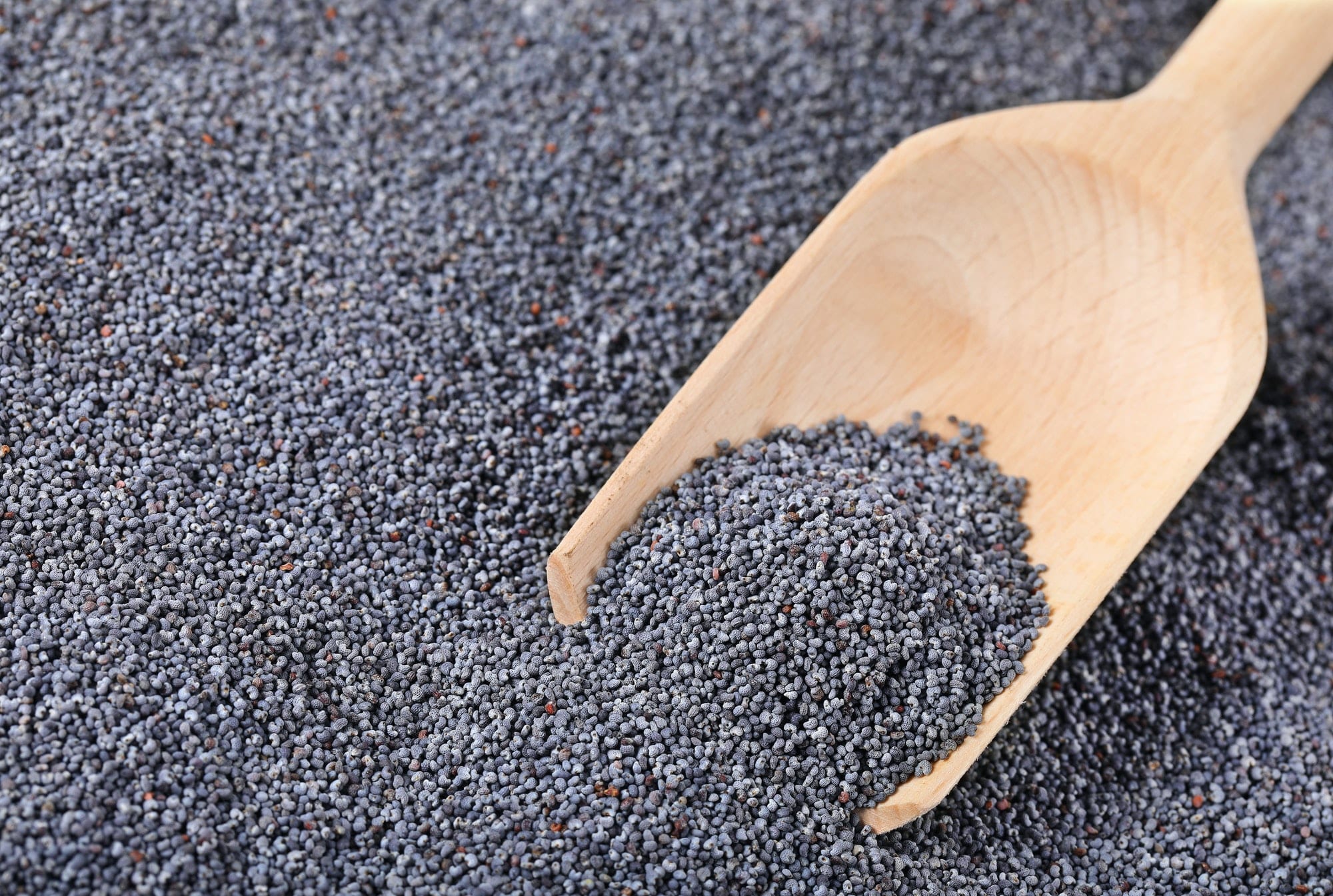
There are two varieties of poppy seed which are either blue or white. In Europe we mainly use the blue (almost black) poppy seeds but in Indian cooking mainly white (more like beige) seeds are used.
The use of white seeds avoids colouring the dish.
Blue and white poppy seeds are, however, very similar in taste and texture.
Poppy seeds are very small and kidney shaped, and they have a sweet and slightly spicy, nutty taste.
They are one of the ingredients found in curry powder.
Background
Poppy seeds originate from the opium plant and are thought to be native to the Middle East. Whilst the seeds have tiny traces of narcotic, this is so minute as to have little impact. Although athletes are recommended not to ingest poppy seeds for several days before an event, as they may test positive for opiates.
It has been recognised as a cooking and medicinal ingredient for around seven thousand years.
In Ancient Egyptian papyrus scrolls they are described as being used as a sedative.
In the Bronze Age poppy seeds were used in a milk and honey mixture to calm crying babies.
The Czech Republic is today the largest producer of poppy seeds for consumption, followed by Turkey and Spain.
Uses for Poppy Seeds in cooking
Whole poppy seeds are widely used as a topping or decoration on baked goods and pastries. They can also be used in salads to add flavour.
Poppy seeds can be ground in a mortar and pestle or spice grinder and turned into a paste for pastry fillings.
In Indian cooking white poppy seeds are used ground and mixed with liquid to thicken and add texture to dishes and are a commonly used ingredient in korma and aloo (potato) dishes.
Whole poppy seeds are also commonly sprinkled over unleavened naan bread and rotis and are also used in mango chutneys.
Their high oil content means they can go off quickly so should not be stored for long periods.
Medicinal uses
Poppy seeds are high in protein and vitamin B. They also contain significant amounts of calcium and phosphorus and are relatively low in allergens.
When used as a tea they are said to help relieve toothache.
They are said to be good at quenching thirst, and can help relieve fevers, inflammation and stomach aches.
Poppy seed paste can be used when combined with lime juice to relief skin itching.

